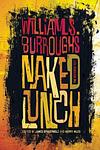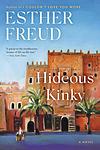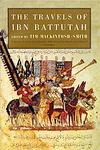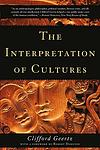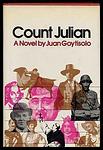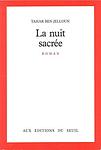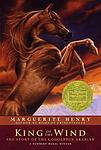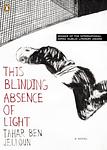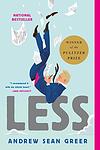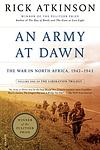The Greatest "Morocco" Books of All Time
Click to learn how this list is calculated.
This list represents a comprehensive and trusted collection of the greatest books. Developed through a specialized algorithm, it brings together 284 'best of' book lists to form a definitive guide to the world's most acclaimed books. For those interested in how these books are chosen, additional details can be found on the rankings page.
Genres
Countries
Date Range
Reading Statistics
Click the button below to see how many of these books you've read!
Download
If you're interested in downloading this list as a CSV file for use in a spreadsheet application, you can easily do so by clicking the button below. Please note that to ensure a manageable file size and faster download, the CSV will include details for only the first 500 books.
Download-
1. Naked Lunch by William S. Burroughs
A controversial novel that explores the dark depths of drug addiction and societal decay, following the protagonist, a junkie, as he navigates through a series of surreal and grotesque scenarios. The narrative is nonlinear and disjointed, reflecting the protagonist's fragmented consciousness and the chaotic nature of addiction. The book is known for its graphic depictions of sex, violence, and drug use, and it challenges traditional notions of morality and narrative structure.
-
2. The Sheltering Sky by Paul Bowles
"The Sheltering Sky" is a novel about an American couple, Port and Kit Moresby, who travel to the North African desert accompanied by their friend Tunner. The journey, initially an attempt to cure their marital woes, quickly descends into a harrowing journey of self-discovery and exploration of the human condition. As they move further into the desert, the harsh environment and their isolation from the outside world push them to their psychological limits, leading to devastating consequences.
-
3. Hideous Kinky by Esther Freud
A young woman travels to Morocco with her two daughters in search of a more fulfilling and adventurous life. The novel explores the experiences of the two young girls as they navigate this new and unfamiliar culture, their mother's search for spiritual enlightenment, and their struggles with poverty. The narrative is a poignant exploration of childhood innocence, the complexities of motherhood, and the clash of cultures.
-
4. Travels (Ibn Battúta) by Ibn Battúta
The book is a comprehensive travelogue written by a 14th-century Moroccan scholar and explorer who traveled extensively across the known world, from Africa to the Middle East, India, China, and Europe. The author shares his observations and experiences in vivid detail, offering unique insights into the diverse cultures, religions, and societies he encountered during his journeys. His accounts serve as a significant historical record of the world during the Middle Ages, providing a firsthand perspective of life during that period.
-
5. The Voices of Marrakesh: A Record of a Visit by Elias Canetti
This book is a travelogue that captures the author's experiences and observations during a visit to Marrakesh, Morocco. The author vividly portrays the city's vibrant culture, bustling markets, and unique characters, giving readers a glimpse into the everyday life of Marrakesh. The book also explores deeper themes such as the clash between tradition and modernity, and the power dynamics between the city's various social classes.
-
6. The Interpretation Of Cultures by Clifford Geertz
The book in question is a seminal work in the field of cultural anthropology, offering a collection of essays that introduce an interpretive approach to understanding cultures. The author argues for a deeper analysis of the symbols and meanings that constitute a society's fabric, suggesting that culture is a system of inherited conceptions expressed in symbolic forms. Through a series of case studies and theoretical discussions, the work emphasizes the importance of thick description—a detailed account of cultural practices—to grasp the context and nuances of social actions. The book challenges readers to consider the complexities of cultural interpretation and the anthropologist's role in deciphering the intricate webs of significance that define human life.
-
7. Le Passé Simple by Driss Chraibi
"Le Passé Simple" is a thought-provoking novel that delves into the complexities of identity, culture, and the struggle for self-acceptance. Set in Morocco during the mid-20th century, the story follows a young protagonist who grapples with the clash between tradition and modernity, as well as the weight of societal expectations. Through vivid prose and intimate character development, the author explores themes of love, rebellion, and the search for personal freedom, ultimately painting a poignant portrait of a society in transition.
-
8. Count Julian by Juan Goytisolo
"Count Julian" is a novel that explores the themes of betrayal, revenge, and cultural identity. The protagonist, an exiled Spaniard, reflects on the history of his homeland, Spain, and its past conquests and losses. He identifies with Count Julian, a historical figure who invited the Moors to invade Spain as an act of revenge against the Visigothic King Roderic. The narrative is a critique of Spanish nationalism and cultural identity, as the protagonist dreams of a new invasion to cleanse Spain of its past and present sins. The book's complex narrative structure, nonlinear timeline, and poetic language make it a challenging but rewarding read.
-
9. Let It Come Down by Paul Bowles
This novel explores the journey of an American bank clerk who, disillusioned with his mundane life, moves to Tangier in search of freedom and adventure. However, his quest for liberation quickly descends into a nightmarish spiral of crime and moral disintegration. Set against the backdrop of post-colonial Morocco, the narrative delves into themes of alienation, the quest for identity, and the often-blurred line between the exotic dream and the harsh realities of cultural dislocation. Through vivid descriptions and a haunting atmosphere, the story presents a compelling examination of the consequences of fleeing one's life only to confront the inescapable truths of the self.
-
10. La Nuit Sacrée by Tahar Ben Jelloun
"La Nuit Sacrée" is a thought-provoking novel that delves into the complex journey of a young Moroccan woman named Zahra, as she navigates the intricacies of her identity and confronts the oppressive societal norms that confine her. Through vivid storytelling and introspection, the book explores themes of cultural heritage, gender roles, and the search for personal freedom, ultimately challenging readers to question the boundaries imposed upon individuals by society.
-
11. King Of The Wind by Marguerite Henry
This book tells the captivating story of Sham, a fleet-footed Arabian stallion, and his devoted stable boy, Agba, as they journey from the deserts of Morocco to the lush countryside of England. Born with the mark of the wheat ear, a sign of speed, but also the mark of the whirlwind, indicating a life of hardship, Sham faces numerous challenges. Despite the obstacles, the bond between horse and boy remains unbreakable. Their story is not only a testament to endurance and loyalty but also serves as the origin tale of the Godolphin Arabian, one of the founding sires of the modern Thoroughbred racehorse.
-
12. Leo Africanus by Amin Maalouf
This historical novel follows the life of a real-life Andalusian-born traveler of the 16th century, who is captured by Christian pirates and presented as a gift to the Pope. Renamed after the pontiff, he becomes a respected scholar and diplomat, navigating the complex cultural and religious divides of the Mediterranean world. Throughout his journeys, which take him from his birthplace in Granada to Fez, Timbuktu, Constantinople, and Rome, he witnesses the tumultuous events of his time, including the fall of Granada and the rise of the Ottoman Empire. His story is one of identity, belonging, and the universal quest for knowledge and understanding amidst a backdrop of conflict and change.
-
13. Century Of Locusts by Malika Mokedden
The book is a powerful narrative set in the desolate Algerian steppe, where a young shepherd named Menouar endures the harsh realities of colonialism and tribal conflicts. His life is forever altered by the arrival of a mysterious and beautiful woman named Lalla Asma, who is fleeing from a forced marriage. As their lives intertwine, they face the brutality of French colonial soldiers and the devastating plague of locusts that threatens their existence. The story delves into themes of love, survival, and the struggle against oppressive forces, painting a vivid picture of a community's resilience in the face of relentless adversity.
-
14. The Ordeal Of Elizabeth Marsh: A Woman In World History. by Linda Colley
"The Ordeal of Elizabeth Marsh" by Linda Colley tells the story of a remarkable woman who lived in the 18th century and traveled the world, experiencing various cultures and societies. Elizabeth Marsh was born into a wealthy family in England but faced many challenges throughout her life, including being kidnapped in Morocco and facing financial ruin. Colley uses Marsh's story to explore themes of gender, power, and imperialism, and to shed light on the experiences of women in world history.
-
15. This Blinding Absence Of Light by Tahar Ben Jelloun
The novel delves into the harrowing experience of a man who, after participating in a failed coup, is sentenced to life imprisonment in a Moroccan desert concentration camp. In this hellish environment, he and his fellow inmates endure unimaginable suffering, with the narrative exploring themes of survival, hope, and the human spirit's resilience. Through the protagonist's eyes, the reader witnesses the brutality of his conditions, the struggle to maintain sanity in the face of relentless darkness, and the power of storytelling as a means of preserving one's identity and humanity amidst the most oppressive circumstances.
-
16. Less by Andrew Sean Greer
The novel follows a failing writer about to turn 50, who receives an invitation to his ex-boyfriend's wedding. In order to avoid the event, he decides to accept every literary invitation he's been given and embarks on an around-the-world journey. As he travels from Paris to India, Berlin to Japan, he finds himself facing the big questions about love, aging, and how to live a life that matters.
-
17. An Army at Dawn by Rick Atkinson
"An Army at Dawn" is a detailed account of the North African campaign during World War II, from the invasion of Morocco and Algeria in November 1942 to the expulsion of Axis powers from Tunisia in May 1943. The book provides an in-depth look at the struggles, victories, and growth of the American and British armies during this period, offering a vivid portrayal of the harsh realities of war and the transformation of a largely untested group of American soldiers into a battle-hardened army.
Reading Statistics
Click the button below to see how many of these books you've read!
Download
If you're interested in downloading this list as a CSV file for use in a spreadsheet application, you can easily do so by clicking the button below. Please note that to ensure a manageable file size and faster download, the CSV will include details for only the first 500 books.
Download